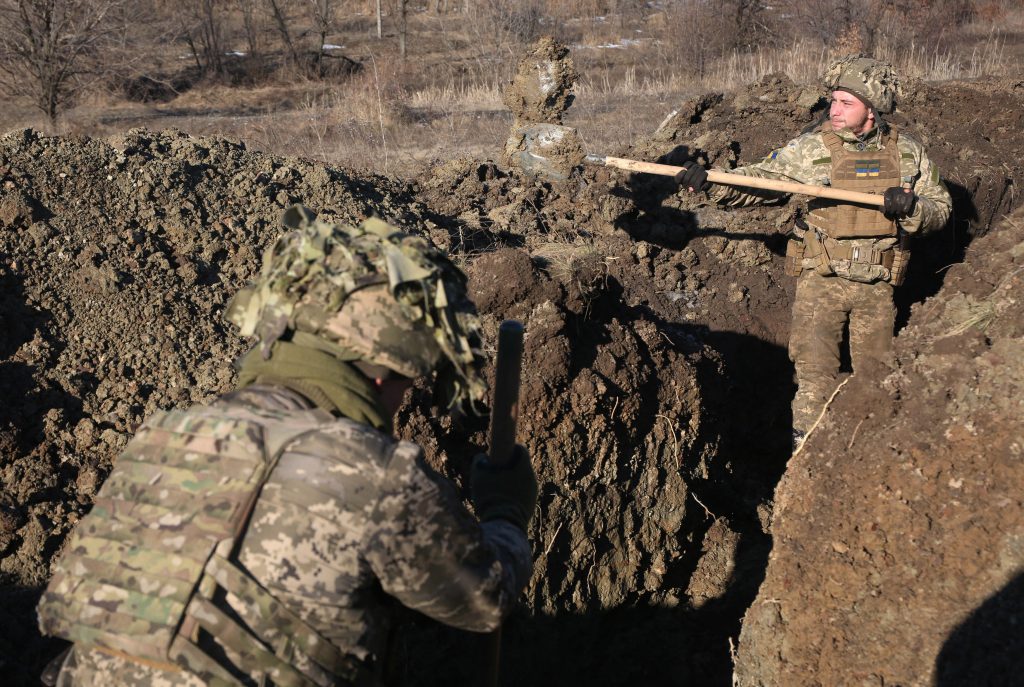
- ARAB NEWS
- 04 Jul 2025

Russia’s relations with NATO have been wobbling for several years. Moscow’s annexation of Crimea in 2014 and the ongoing Ukraine crisis have further exacerbated the situation. However, independently from these two crises, the tensions continue to grow.
Late last year, Russia closed its permanent mission to NATO. This rebuff was followed by a more concrete step. Sergei Ryabkov, Russia’s deputy foreign minister, three weeks ago disclosed two texts, one destined for the US and the other sent to the European members of NATO. The ideas contained in these proposals were a more structured form of the scattered ideas that have been floated by top Russian officials on various occasions in the recent past. With these two texts, Russia expressed its wish to reset relations with the NATO member states to where they were at the end of the Second World War.
Though the focal point of Russia’s proposal was Ukraine, it went beyond that and proposed that NATO should not further expand its membership with former Soviet states, particularly Ukraine and Georgia. This proposal contradicts a basic rule of international law as it restricts independent countries from joining any international alliance they wish.
NATO immediately rejected the proposal and said it would not accept any conditions, but we can presume that work may be underway in the NATO states’ chancelleries to assess various aspects of it.
Moscow likely had several reasons for launching such an initiative.
Substantive changes have taken place in the world since the end of the Second World War. The Soviet Union has been dismembered, but Russia has now recovered from that trauma. It has regained its self-confidence, annexed Crimea, militarily threatens Ukraine, is seriously disturbed by the prospect of Ukraine and Georgia joining NATO, has strongly established itself in Syria, and plays an important role in Libya through Wagner Group mercenaries.
As a result, Moscow wants to regain political influence in the former Soviet geography to the fullest extent possible. This includes the new NATO-member Baltic countries, the South Caucasus and the Central Asian Turkic states. There are varying numbers of ethnic Russians in each of these areas. Some Russian political figures have already voiced veiled threats to these countries in favor of the ethnic Russians living there, but the chances of the peoples of the Baltic countries wanting to rejoin Russia can be considered to be zero.
There is, apparently, a strong drive in the Russian state’s traditions that pushes it to recover the territories of the former Soviet Union. It did so in Crimea and is now involved in the Donetsk and Luhansk provinces of Ukraine. It also did not miss the opportunity to deploy Russian soldiers in the autonomous region of Nagorno-Karabakh 16 years after they were withdrawn. And last week it did the same in Kazakhstan after public demonstrations against a rise in fuel prices spiraled out of control. The Russian soldiers are there under the umbrella of the Collective Security Treaty Organization, but they are still Russian soldiers.
However, one has to keep in mind that this is a double-edged sword. The Russian Federation contains a wide variety of non-Russian ethnic minorities. So, people who live in glass houses should not throw stones.
With its initiative, Russia is also asking for NATO military infrastructure that was constructed in Eastern Europe after 1997 to be dismantled. NATO is composed of democratic countries and such decisions are adopted by consensus. Therefore, when the national interests of a member country are harmed, the decision cannot be adopted.
In this context, Turkey can be considered as a special case. Ankara maintains close relations with Moscow, though in a fluctuating pattern. They are fighting on opposing sides in Libya. They have contradicting interests in the Idlib province of Syria. They have a lame cooperation in Nagorno-Karabakh.
The attitude toward Turkey in Washington is yet another story. In the US Congress, there is bipartisan opposition to Ankara’s approach as a result of its purchase of the Russian-manufactured S-400 air defense system, along with a plethora of other reasons. Many members of congress consider Turkey to be a liability rather than an asset in NATO. Russia is doing everything it can to drive a wedge in NATO by encouraging Turkey to play an independent role.
NATO may survive without Turkey, but it would not be the same alliance. Outside of NATO, Turkey would move closer to Russia and this would mean a meaningful change in the east-west balance.
The European members of NATO wish to keep Turkey in the alliance, but outside the EU. Turkish President Recep Tayyip Erdogan has no love lost for the Euro-Atlantic community. In light of this background, a more appropriate policy for Turkey would be to maintain its position in NATO and become an additional conduit between its fellow alliance members and Russia.
Yasar Yakis is a former foreign minister of Turkey and founding member of the ruling AK Party.
Twitter: @yakis_yasar